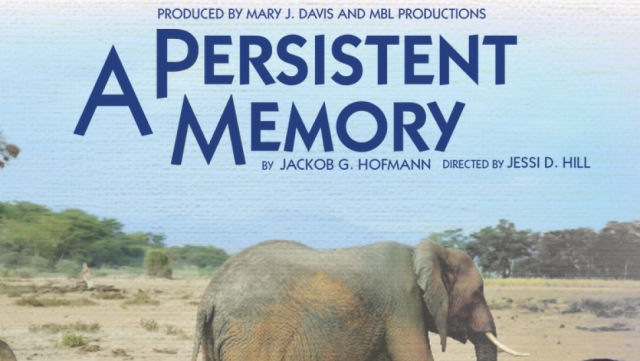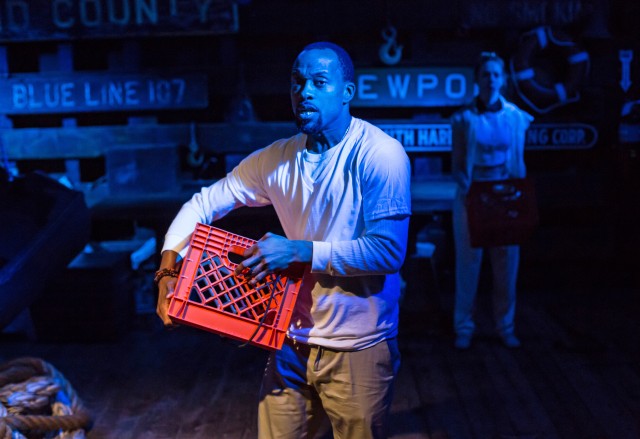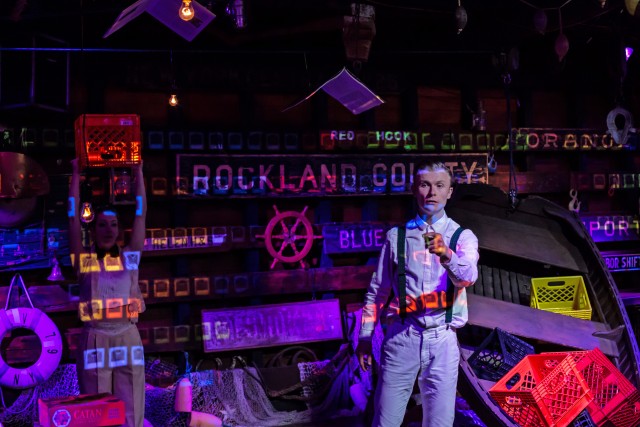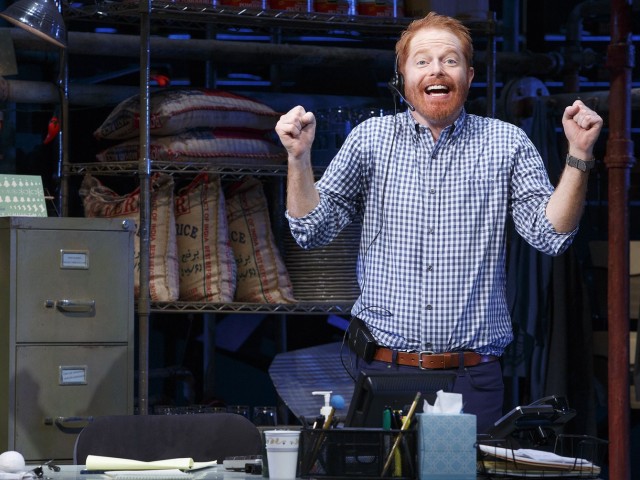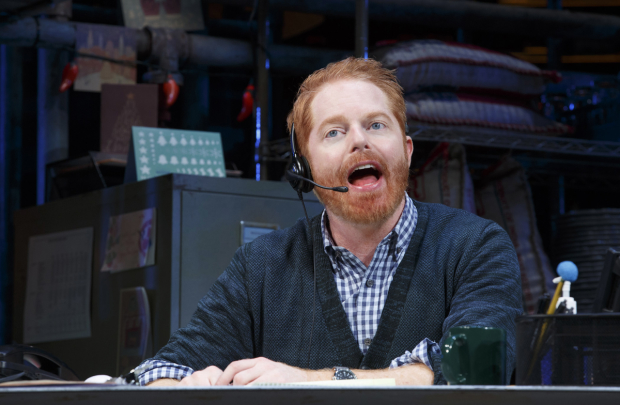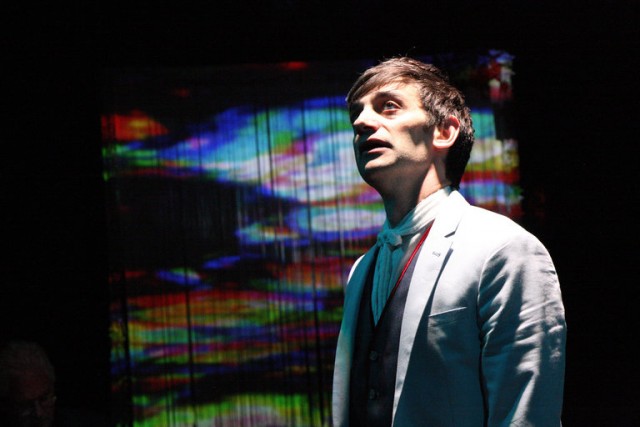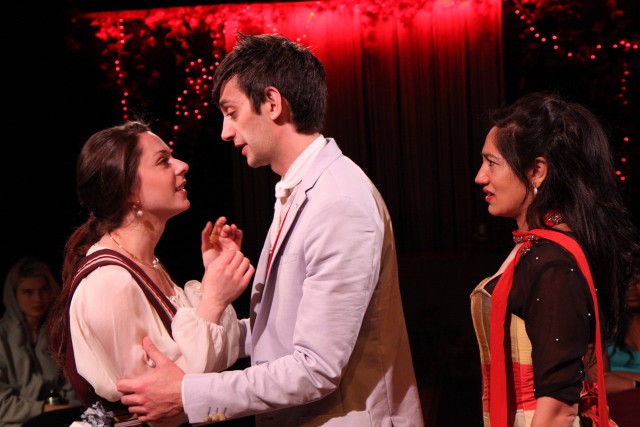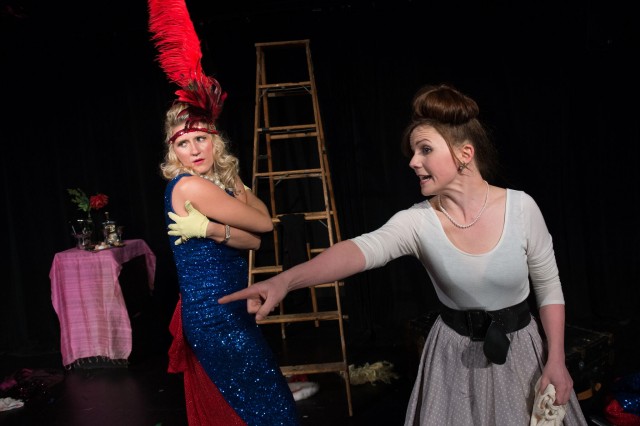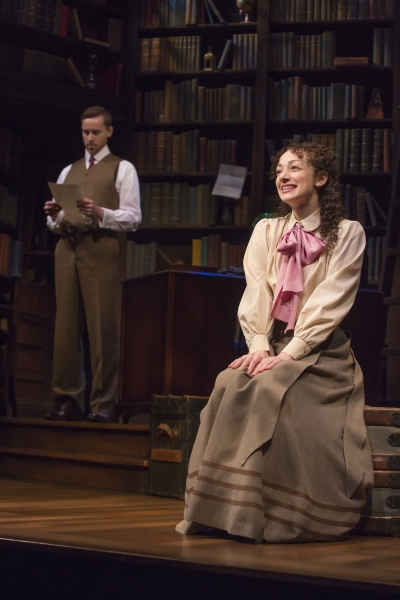
Megan McGinnis shines as orphan getting chance to go to college in DADDY LONG LEGS (photo by Jeremy Daniel)
Davenport Theatre
354 West 54th St. between Eighth & Ninth Aves.
Friday – Wednesday through June 6, $59.50 – $89.50
www.daddylonglegsmusical.com
Don’t let the title steer you in the wrong direction. The off-Broadway musical Daddy Long Legs is not a stage adaptation of the 1955 Jean Negulesco film starring Fred Astaire and Leslie Caron, nor is it a theatrical version of Josh and Benny Safdie’s 2009 hit indie film, Daddy Longlegs. (It’s not about spiders either, although it references the creepy arachnid.) This absolutely lovely Daddy Long Legs goes back to the source of the earlier film, Jean Webster’s 1912 epistolary novel about an American orphan’s coming-of-age as a young woman in a male-dominated society. Megan McGinnis gives one of the most charming and engaging performances of the season as Jerusha, who is, as she sings in the show’s catchy opening number, “the oldest orphan in the John Grier Home.” She also points out, “Poor Jerusha Abbott / Never breaking free of this place,” but she is finally given a shot at a real life when her essays win her a college scholarship — previously reserved for boys only — from a mysterious, anonymous benefactor. But “The Further Education of Miss Jerusha Abbott by Mr. John Smith” comes with nine very specific rules, including requirements that Jerusha must write him a letter every month, can never thank him, will never receive a letter back, and will never meet him. However, her very first letter from college begins to beguile Mr. Smith with her candidness and fresh point of view on life and education. “I just wanna be like other girls / Get all dressed up like other girls / Become a scientist, a motorist / a suffragette, a Methodist / a Fabian, a Freudian / the class valedictorian,” she explains to Mr. Smith, who is actually Jervis Pendleton, the wealthy scion of a society family. In subsequent letters, she wonders more about Daddy Long Legs, whether he is old and bald, rich and tall, while a lovestruck Jervis starts thinking that he needs to meet Jerusha but maintain his secret identity.
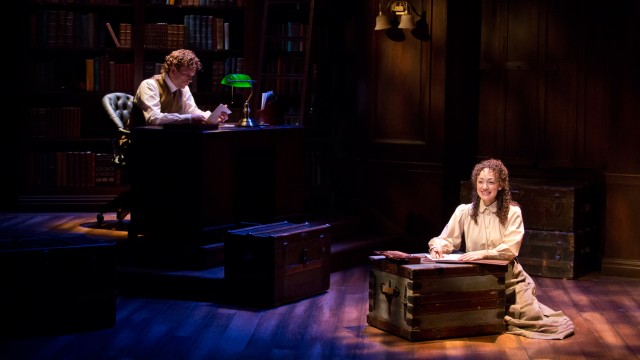
DADDY LONG LEGS is told exclusively through letters and songs (photo by Jeremy Daniel)
Two-time Tony-winning director John Caird (Les Misérables, Nicholas Nickleby) and composer Paul Gordon, who previously collaborated on Jane Eyre, wrote the book, music, and lyrics for Daddy Long Legs, with Caird directing. All of the dialogue comes from Jerusha’s letters, which are either read or sung by her and Jervis, the latter often sitting at his desk at the back of the left corner of the stage, in his book-laden study, while Jerusha is generally front and center. The quaint set and period costumes are by David Farley, with subtle lighting by Paul Toben, sound by Peter Fitzgerald, and splendid orchestrations by Brad Haak, performed live by Haak on piano, Steven Walker on guitar, and Jeanette Stenson on cello. Projections in a cursive typeface identify the precise time and place like chapter headings. McGinnis (Les Misérables, Beauty and the Beast) is beyond delightful as Jerusha, casting wide-eyed smiles directly at the audience, making warm, intimate connections with her beautiful voice as well. McGinnis, who originated the role in 2010 at the Rubicon Theatre Company and has played Belle in Beauty on the Beast and Eponine in Les Miz on Broadway, has an infectious charisma and casual grace that should make her a star. The role of Jervis is usually played by McGinnis’s real-life husband, Adam Halpin (Paul Alexander Nolan originated the role off Broadway), but we saw his understudy, Will Reynolds, who was just fine following some initial tightness. Nominated for two Drama Desk Awards and three Outer Critics Circle Awards, Daddy Long Legs was scheduled to end its run on January 10 but was extended to June 6, so there’s not much time left to see one of the best shows of the year.
